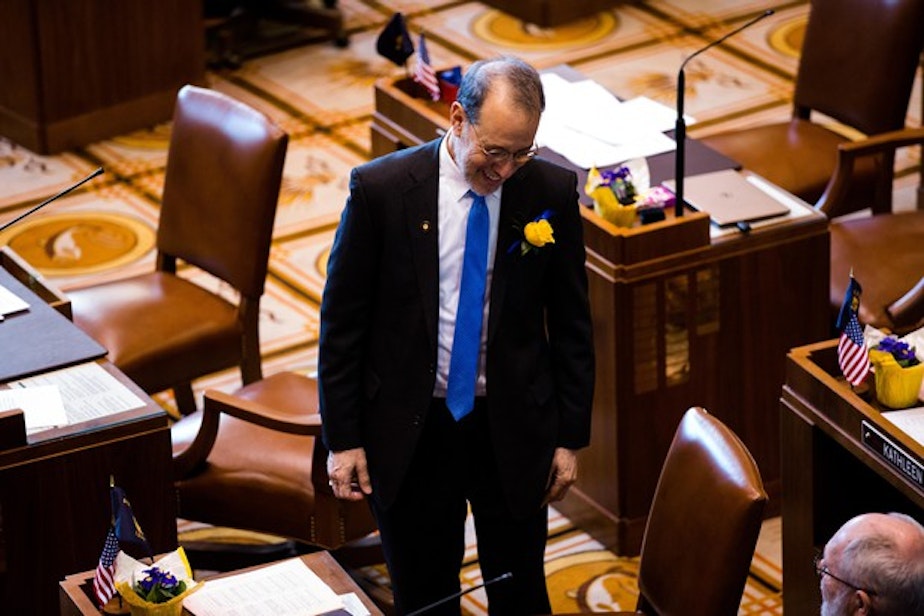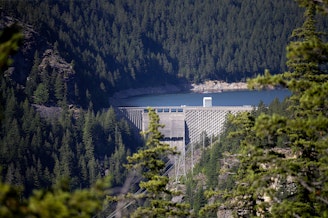Oregon Lawmakers Prepare To Release New Cap And Trade Bill

State Sen. Michael Dembrow, D-Portland, on the floor of the Oregon Senate in Salem, Ore., Monday, Jan. 14, 2019.
Oregon lawmakers on a joint committee devoted to reducing the state's carbon emissions met Friday to discuss a new version of cap-and-trade legislation they plan to release next week.
Republicans on the committee expressed frustration that they still haven't seen the new bill. They raised concerns that a cap-and-trade system could harm the state's economy. However, both Republican and Democratic members expressed support for reducing the state's carbon emissions.
A cap-and-trade program would set a limit on the state’s total carbon emissions and require some industries to buy pollution permits to cover their emissions. It would also create a market for buying and selling emission credits. Over time, it would gradually impose stricter limits on total carbon emissions.
The Legislature debated the issue last year but failed to pass the legislation known as the Clean Energy Jobs Bill. House Speaker Tina Kotek, D-Portland, and Senate President Peter Courtney, D-Salem, devised a plan to revive the controversial bill by creating and leading a Joint Committee On Carbon Reduction.
Now, both leaders and Oregon Gov. Kate Brown say they're committed to getting the bill passed this session.
Sponsored
Right now, the problem is that the new bill isn't done yet.
Sen. Fred Girod, R-Stayton, said he has been "locked out" of the bill-writing process by Democratic leaders such as committee co-chair Michael Dembrow, D-Portland.
"This isn’t a one-man show," Girod said. "I don’t care what the governor says. I care what my district says. I think it’s extremely important that Republicans have a voice in how this bill is created."
Sen. Cliff Bentz, R-Ontario, said his party wants to avoid economic hardships while addressing the issue of climate change.
"This bill has enormous costs caught up in it," he said. "The value of this bill is its ability to convince other people to follow Oregon’s lead. And this means we have to get it right. It’s not going to save the world. What saves the world is other people saying, 'Hey, Oregon figured out how to do it.'"
Sponsored
The committee heard from Angus Duncan of the Oregon Global Warming Commission about serious and measurable impacts from climate change that have already arrived in Oregon such as hotter summers, bigger wildfires, drought and lower snowpack.
The state’s carbon emissions from transportation actually went up last year, according to the commission's latest report. That makes it even less likely that Oregon will meet its carbon reduction goals without new regulations.
Sen. Kathleen Taylor, D-Milwaukie, noted that while a cap-and-trade system will cost some money, so do the impacts of climate change.
“Climate change is impacting all aspects of the environment and it’s costing us money," she said. "We shouldn’t be spending the kind of money to mitigate against the impacts of climate change.”
The committee will meet again on Friday, Feb. 1, to go over the new bill and hold its first hearing. [Copyright 2019 EarthFix]



